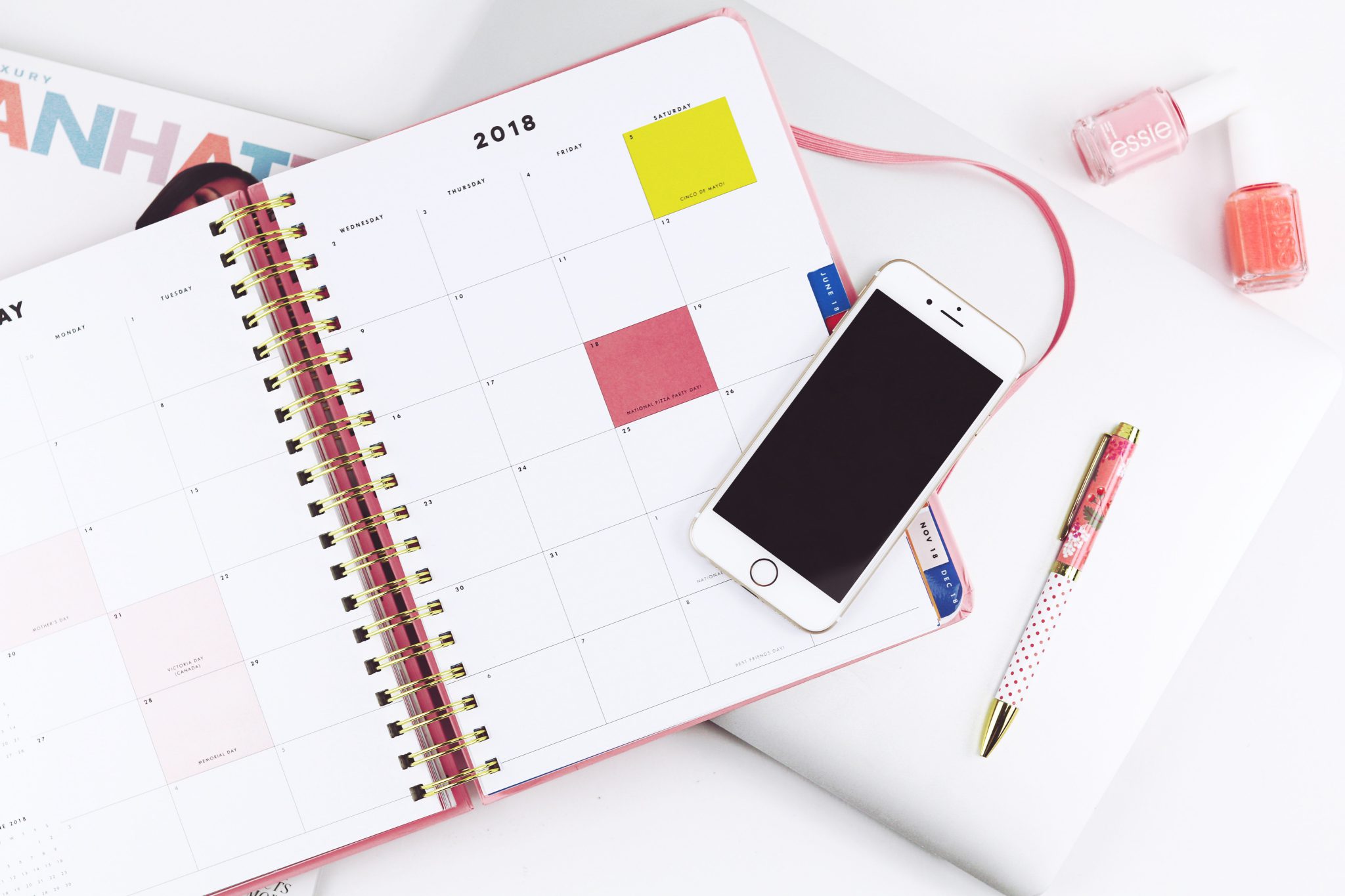
How To Cope When Things Are Stressful At Your Job
Most people spend 40 hours of their week at work. That’s almost 36% of the average person’s waking hours! So more than 1/3 of your time is spent at your job. Do you want to minimize your amount of work stress so you can feel more calm in your life overall?
Unfortunately, it is becoming more and more common for people to feel stressed at work. According to The American Institute Of Stress:
- “40% of workers reported their job was very or extremely stressful.”
- “65% of workers said that workplace stress had caused difficulties and more than 10 percent described these as having major effects.”
Work stress is real and costly and contributes to:
- Decreased productivity
- Difficulty sleeping
- Physical pain and ailments
- Calling out sick
- Higher job turnover
- Accidents on the job
In addition to these consequences, work stress can trickle over into your personal life and overall life satisfaction. When you are experiencing stress at work, it can be difficult to “leave your job at the door” when you get home. This can result in increased conflict with your family or significant other, increased rates of anxiety and depression, increased consumption of drugs, alcohol, overeating, and other unhealthy coping skills.
With all of this work stress and the consequences, it is essential to find effective ways of coping- especially if it’s not in the cards for you to look for a new job right now. Keep reading for 5 easy ways to reduce work stress.

Create A Morning Routine
Starting the day off right with a morning routine that you enjoy can help you get started on the right foot before your workday. When you prioritize yourself first and start the day off slow, this will certainly translate into a positive mindset for the rest of the day. Usually, at work other people control and dictate your time, so this time focused on taking care of yourself first will help you feel less resentful when it comes time to work for others.
Here are some ideas for how to implement a calming morning routine:
- Wake up with plenty of time for you to take things slow so that you don’t have to rush in the morning.
- Take time to relax by sipping your cup of coffee, reading a chapter in a book, meditating, or just sitting outside taking in the sun.
- Get your heart pumping by exercising first thing in the morning. Studies show that exercise earlier in the day helps your body burn more fat for the rest of the day, along with the numerous mental health benefits of exercise.
- If you have kids, a significant other, or anybody else in the house, wake up before others so you have quiet time to yourself.
- Make your commute more enjoyable by listening to a podcast, music, or talk radio.
Build Positive And Professional Relationships
One of the most challenging aspects of work can be dealing with other people. You don’t have to like your coworkers, but you do have to cooperate with them enough to get the job done. This can be difficult if you don’t like your coworkers or if you struggle with conflict or if you allow your emotions to get the better of you.
Having a friend a work can be great, and actually leads to increased job satisfaction. But there may still be those people that you don’t like, stress you out, or you just don’t see eye to eye with.
Here are my tips to stay civil and professional with your coworkers, especially when the going gets tough:
- Find just one thing you like about that difficult coworker. It can make it easier for you to interact with them and to recognize that each person is multi-dimensional and has both positive and negative attributes.
- Don’t take things personally. This one is huge, especially at work. People are usually acting out of their mood, insecurities, home stresses, overwhelm, pressure from their superiors, you name it! It is not about you!
- Focus on the facts. You can’t argue with the facts. If things ever become emotional or heated, take a few deep breaths and walk away if you have to. When you are able to resume the conversation calmly, focus on the facts to get your point across.
- Use “I” statements. When the time comes for you to express how you feel, or how you want things to change, never start off with blaming the other person. No matter who you are, people will almost always become defensive when you approach them in that manner. Say things such as, “I feel unsupported when my strengths are not pointed out.”

Prioritize And Organize
Overwhelm leads to stress, and overwhelm happens when you are not prioritizing and organizing your tasks. It can be so easy to keep taking on more and more tasks, trying to multitask to get things done, and getting stressed out as a result.
Not prioritizing and organizing can result in you having to stay late to finish work, constantly feeling as though you are running in place to catch up, and never being able to slow down. Follow the tips below for easy ways to increase your productivity and decrease your work stress.
- Prioritize your tasks and responsibilities by choosing only 3 priorities daily. These are the big and most important tasks that must be done, whether because of deadlines, importance, or difficulty. When your daily to-do list is overflowing with tasks you can feel as though you are never accomplishing anything and this can cause your motivation to suffer. Be realistic with those 3 large tasks you know you can and have to get to and then you will feel so much more accomplished at the end of the day.
- Create a plan. This goes hand in hand with the previous tip, but you absolutely must plan out your days in advance. As the saying goes, “failing to plan is planning to fail.” Make it a point to plan out your schedule for the next week on the Friday before (or whatever day makes sense for your schedule).
- Declutter your space. A cluttered desk is a cluttered mind. Clearing your desk of the papers that you need to look through, or the million post-it notes to remind you of things can literally help to clear your mind from stress. Take 5-15 minutes once a week to declutter things and see how it can help.

Take Breaks
“But I am way too busy!” I am already anticipating the resistance to this because I know so many people who tell me that they just don’t have time for a break because they are so overwhelmed. Did you know that not taking a break actually decreases your productivity? It makes it harder for you to focus which will increase your stress levels resulting in a vicious cycle of stress.
Even if it’s only for 15 minutes, taking a break is so extremely beneficial for your sanity at work. And on top of that, labor laws in the United States require breaks so please take advantage of them. Check out my tips for taking breaks below.
- Get out of the office. Even if it’s just a walk in the parking lot or down the block, getting away physically will help you refocus mentally.
- Do something you enjoy and can look forward to. The promise of your favorite cup of tea, reading a chapter from a book you love, or chatting with a close friend can help you keep an attitude of positivity at work.
- Practice relaxation. Take some deep breaths, meditate, or do some gentle stretching (especially if you sit at a desk all day) to help you relax, refocus, and take care of your body.
Let Go Of What You Can’t Control
My final tip to decrease work stress is practicing acceptance. So much of stress relief comes from your perception and mindset regarding your stressors. People often suffer because they don’t agree with workplace policies, politics, or the opinions of others. But these attitudes are only helpful if they motivate you to create change and you actually can create change.
But quite often (especially in a corporate environment), you have no control over company policies, and you never have control over the opinions of others. Accepting what you cannot control and doing your very best on your own is the only thing you can do in many situations.
This is especially true if you have been complaining and suffering for weeks, months, or even years about the same things and nothing has changed or gotten better! If this is the case, the only thing you can change is your attitude and making efforts to not create more suffering through complaining.
I only have one tip here:
- When you complain, you are causing yourself to suffer twice. Practice acceptance by letting go of what you cannot control or change, and focusing on what you do have control over.
Work stress can be a pain: physically and mentally! Use the tips above to help you find ways to reduce work stress by making things even a little more enjoyable and tolerable.
If you’re looking for individual support in implementing these concepts and decreasing work stress, then schedule an appointment to work with me in therapy so you can learn how to feel calmer from within.












